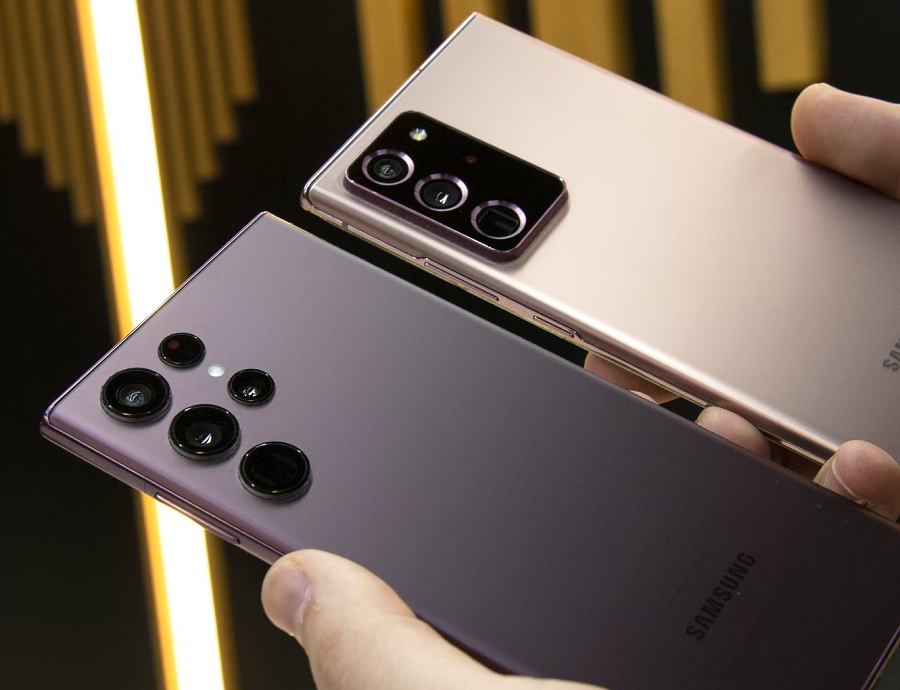Samsung is the latest smartphone maker caught in allegations of throttling the performance of mobile apps on Galaxy phones. The company has reportedly launched an internal investigation centered on its Game Optimizing Service (GOS) app, which is believed to be the main cause of the issue.
Earlier this week, Twitter user GaryeonHan said Samsung introduced the GOS app to “limit game performance.” But Samsung customers in Korea have been posting complaints that Samsung is purportedly using GOS for thousands of non-gaming apps.
Samsung created an app called GOS and used the app to limit game performance, making the gaming experience worse. However, according to what the Korean community found out today, Samsung confirmed that it has put performance limits on more than 10,000 apps... pic.twitter.com/U58AreZZoo
— 한가련 (@GaryeonHan) March 2, 2022
Samsung has yet to address the alleged throttling of 10,000 apps, but a machine-translated post on Naver now claims the company has launched an internal investigation and that an important announcement could happen soon. It is still unclear if this could be fixed with an OTA update, but the same post noted that Samsung is approaching the investigation with the same importance as its probe of the Galaxy Note 7 fiasco.
Samsung users have shared their experience on various Korean online community forums, including a spreadsheet file (via Android Authority) that shows a compilation of 10,000 apps that were reportedly being throttled by the GOS app. The list includes everyday apps, including YouTube, Camera, Microsoft Office products, Snapchat, Spotify, TikTok, and Netflix.
Korean netizens also found that the GOS does not include benchmarking apps. A Korean YouTuber posted a brief demonstration of how the GOS drastically limits the performance of gaming apps. They changed the package name of the 3DMark app to trick the GOS into detecting it as “Genshin Impact” to show how much the GOS affects an app’s performance. While this is the first time this issue was noticed by many users, it does not seem like it is exclusive to the Galaxy S22 phones.
As mentioned, this is not the first time a smartphone maker was found to be throttling app performance in the guise of optimization. Apple’s “Battery-gate” a few years ago showed that throttling a device’s performance was mainly done to prolong a battery’s life cycle.
Just last July, OnePlus was also reportedly limiting the performance of popular apps on the OnePlus 9 series. The company later said that the performance optimization was done after receiving feedback about the phones’ “battery life and heat management.”
Photo by Zana Latif on Unsplash



 Nvidia CEO Jensen Huang Says AI Investment Boom Is Just Beginning as NVDA Shares Surge
Nvidia CEO Jensen Huang Says AI Investment Boom Is Just Beginning as NVDA Shares Surge  SpaceX Updates Starlink Privacy Policy to Allow AI Training as xAI Merger Talks and IPO Loom
SpaceX Updates Starlink Privacy Policy to Allow AI Training as xAI Merger Talks and IPO Loom  Elon Musk’s Empire: SpaceX, Tesla, and xAI Merger Talks Spark Investor Debate
Elon Musk’s Empire: SpaceX, Tesla, and xAI Merger Talks Spark Investor Debate  Anthropic Eyes $350 Billion Valuation as AI Funding and Share Sale Accelerate
Anthropic Eyes $350 Billion Valuation as AI Funding and Share Sale Accelerate  Baidu Approves $5 Billion Share Buyback and Plans First-Ever Dividend in 2026
Baidu Approves $5 Billion Share Buyback and Plans First-Ever Dividend in 2026  Amazon Stock Rebounds After Earnings as $200B Capex Plan Sparks AI Spending Debate
Amazon Stock Rebounds After Earnings as $200B Capex Plan Sparks AI Spending Debate  Alphabet’s Massive AI Spending Surge Signals Confidence in Google’s Growth Engine
Alphabet’s Massive AI Spending Surge Signals Confidence in Google’s Growth Engine  Nintendo Shares Slide After Earnings Miss Raises Switch 2 Margin Concerns
Nintendo Shares Slide After Earnings Miss Raises Switch 2 Margin Concerns  OpenAI Expands Enterprise AI Strategy With Major Hiring Push Ahead of New Business Offering
OpenAI Expands Enterprise AI Strategy With Major Hiring Push Ahead of New Business Offering  SoftBank and Intel Partner to Develop Next-Generation Memory Chips for AI Data Centers
SoftBank and Intel Partner to Develop Next-Generation Memory Chips for AI Data Centers  Jensen Huang Urges Taiwan Suppliers to Boost AI Chip Production Amid Surging Demand
Jensen Huang Urges Taiwan Suppliers to Boost AI Chip Production Amid Surging Demand  Elon Musk’s SpaceX Acquires xAI in Historic Deal Uniting Space and Artificial Intelligence
Elon Musk’s SpaceX Acquires xAI in Historic Deal Uniting Space and Artificial Intelligence  Oracle Plans $45–$50 Billion Funding Push in 2026 to Expand Cloud and AI Infrastructure
Oracle Plans $45–$50 Billion Funding Push in 2026 to Expand Cloud and AI Infrastructure  Palantir Stock Jumps After Strong Q4 Earnings Beat and Upbeat 2026 Revenue Forecast
Palantir Stock Jumps After Strong Q4 Earnings Beat and Upbeat 2026 Revenue Forecast  SpaceX Seeks FCC Approval for Massive Solar-Powered Satellite Network to Support AI Data Centers
SpaceX Seeks FCC Approval for Massive Solar-Powered Satellite Network to Support AI Data Centers 































